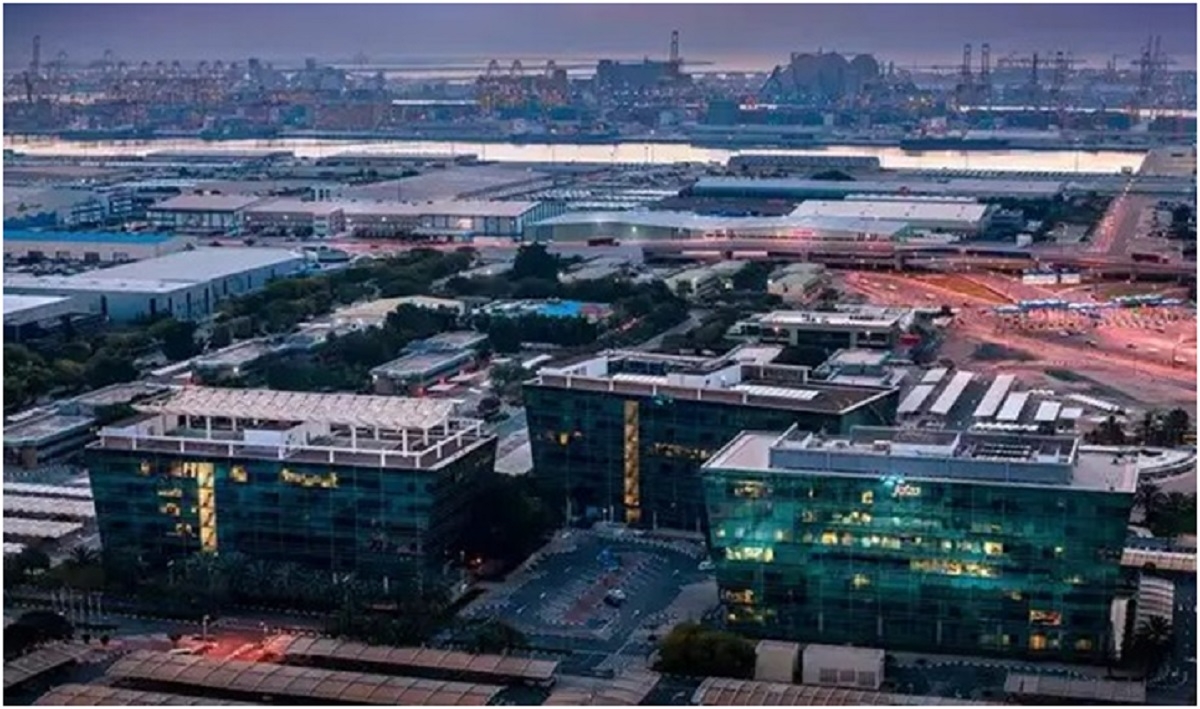Why Dubai is becoming the first choice for Indian logistics companies
Total Views |

As dawn breaks over Jebel Ali Port, the synchronised movements of cranes and the steady flow of cargo vessels highlight Dubai’s emergence as a global logistics hub. Once a vital transit point between East and West, the city is now actively shaping the future of global supply chains with cutting-edge technology, infrastructure, and government-backed smart trade initiatives.
At the heart of this transformation is a flourishing trade relationship with India—one that is not only rooted in history but is now accelerating into the future, powered by AI-driven logistics, automation, and free trade agreements.
For centuries, India and Dubai have shared a strong economic relationship, and today, that connection is being redefined by innovation.
The UAE-India Comprehensive Economic Partnership Agreement (CEPA), signed in 2022, eliminated tariffs on over 10,000 products and set a goal to increase non-oil trade to $100 billion by 2030.
But beyond trade figures, Dubai offers Indian logistics firms something even more valuable—a world-class supply chain ecosystem, a thriving free trade environment, and an AI-powered logistics infrastructure that makes global expansion seamless.
“India holds great strategic importance for DP World,” said Sultan Ahmed bin Sulayem, Group Chairman and CEO of DP World. “We have invested over $2.5 billion in the country’s logistics ecosystem to enhance domestic and global connectivity.”
This commitment to enhancing India-UAE trade routes has positioned Dubai as a springboard for Indian logistics companies seeking global reach.
Why Indian logistics firms are choosing dubai
Dubai’s logistics infrastructure is built for speed, scale, and efficiency.
The Jebel Ali Port, one of the world’s largest and busiest container ports, and Jebel Ali Free Zone (Jafza), which houses over 10,700 multinational companies, create a seamless supply chain network, reducing logistics costs and optimising operations.
For Indian logistics startups, this presents a strategic advantage—access to a globally connected hub with state-of-the-art AI-driven solutions.
“Many enterprises struggle with visibility into their logistics costs. They don’t always know how much they are spending or where inefficiencies lie,” says Deepesh Kuruppath, Founder & CEO of CargoFL, a supply chain AI platform. “In Dubai, we have found the perfect ecosystem to introduce AI-driven optimisations for large enterprises.”
CargoFL’s platform identifies inefficiencies in a company’s supply chain and provides automation and digitisation solutions. With advanced AI-driven analytics, companies can save up to 10% on logistics costs, according to Kuruppath.
Dubai’s AI-driven logistics revolution
Dubai has transformed to be a logistics and innovation hub.
The city’s leadership in AI, automation, and blockchain technology is creating one of the most sophisticated digital supply chain ecosystems in the world.
Government initiatives like the Dubai Silk Road strategy and the Dubai AI Strategy have transformed the logistics sector, making it easier for businesses to automate supply chain processes, track shipments in real-time, and optimize freight movements using predictive analytics.
“We recognise the critical role the logistics sector plays in enabling the growth of industries globally,” said Abdulla Bin Damithan, CEO and Managing Director of DP World UAE & Jafza. “As the UAE continues to grow into a global processing and re-distribution gateway, we have experienced a significant spike in demand for logistics and warehousing space.” For companies like Fero.AI, Dubai is the ideal testing ground for logistics automation.
“We operate in one of the most advanced trade ecosystems in the world,” says Abhinav Chaudhary, CEO and Founder of Fero.AI. “Dubai’s logistics infrastructure, combined with government-backed smart trade initiatives, has allowed us to integrate AI-powered solutions efficiently.”
Fero.AI specialises in automating freight and supply chain processes and collaborates with DP World to implement AI-driven logistics solutions. The company sees Dubai as a perfect platform to introduce cutting-edge logistics automation technologies.
The free zone advantage: A business-friendly logistics hub
Dubai’s free zones have made the emirate one of the most attractive destinations for Indian logistics firms. Jafza, for instance, offers - 100% foreign ownership, zero import/export duties, unrestricted currency repatriation, and simplified business setup processes.
” For an Indian company, setting up in Jafza is almost seamless,” says Kuruppath of CargoFL. “You don’t face the tax burdens and operational complexities that exist elsewhere. Dubai’s free zones are designed for logistics companies to thrive.”
Jafza is expanding its logistics capacity with the development of the Jafza Logistics Park, a multi-tenant warehousing facility in the Jebel Ali Free Zone. Phase 1 of the project, which was scheduled for completion in 2023, was successfully completed as of November 2024.”We are building the Jafza Logistics Park in response to increasing demand and to further boost the development of the UAE’s logistics sector,” added Damithan of DP World UAE & Jafza.
With fast-track business licensing, cutting-edge warehousing facilities, and streamlined customs processes, Jafza has become a magnet for Indian logistics and supply chain companies.
A future built on collaboration and innovation
As India’s economy expands and Dubai cements its status as a global logistics hub, the partnership between the two regions is set to grow exponentially.
“We are at the beginning of a major shift,” says Kuruppath of CargoFL. “Dubai is no longer just a transit hub—it is a technology hub. AI, automation, and smart logistics are redefining how supply chains function, and Indian companies have an opportunity to be at the forefront of this transformation.”
For Indian logistics firms looking to scale globally, optimize costs, and tap into AI-driven supply chain solutions, the message is clear:
Dubai is not just a bridge between East and West—it is the future of global logistics.

